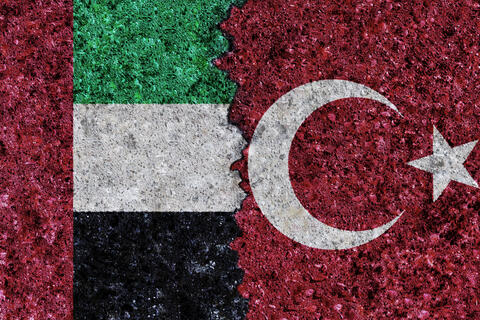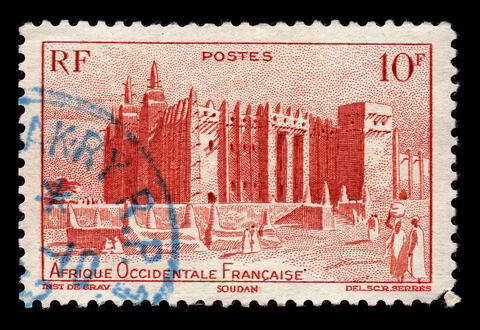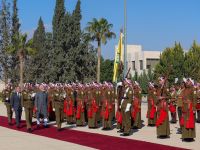By Farzad Ramezani Bonesh
Turkey recognized Israel in March 1949. Bilateral relations in the following decades were sometimes accompanied by less serious ups and downs. These relations continued during the rule of the Justice and Development Party over Turkey. But, in 2010, when eight Turkish nationals were killed by Israel, relations entered a new phase. However, after the tension eased in 2016, in protest to the relocation of the US embassy to Jerusalem, the Israeli ambassador was expelled from Turkey in 2018.
Erdogan's first talks with the Israeli Prime Minister since 2013, his three rounds of talks with Isaq Herzog's in the past year (about the death of his mother, a new post, and the release of an Israeli couple from Turkey); Erdogan's medical consultation with an Israeli doctor and talks between the Israeli and Turkish foreign ministers after 13 years are important steps in expanding relations.
In the meantime, apart from the visit of Turkish officials to Israel to discuss preparations for President Isaq Herzog's meeting with Erdoan, welcoming Herzog at the Turkey’s Presidential Palace on March 9 was an important step in the normalization of Turkish-Israeli relations.
A step that Recep Tayyip Erdogan called it a new turning point in Turkish-Israeli relations. Herzog, on the other hand, said that Israel and Turkey could cooperate in many areas that have a significant impact on the region.
Opportunities and motivations for normalizing relationships
Diplomatic and geopolitical cooperation
The revival of political dialogue between countries based on common interests and respect for mutual sensitivities is an opportunity for the two actors in the Mediterranean to expand bilateral cooperation and regional dialogue to address disputed issues. In fact, the promotion of diplomatic contacts from the level of the charge d'affaires (in the past few years) can provide the ground for diplomatic, political and regional consultations and talks.
From this perspective, the appointment of ambassadors will be the first concrete step towards the normalization of Turkish-Israeli relations. In fact, although Herzog does not determine Israel's foreign policy, this visit and the subsequent visit of Turkish Foreign Minister Mevlüt Çavuşoğlu to Israel in April will be the first symbolic step in reducing tensions and moving towards normalization and then expanding and reviving the past relations.
In another dimension, Turkey seems to be much more eager to revive relations. Ankara does not want to stand alone and see the danger of forming anti-Turkish geopolitical coalitions in the region. Due to Turkey's proximity to the Mediterranean, alliances and coalitions in the Eastern Mediterranean are not in Turkey’s interests.
Dimensions of geopolitical and security cooperation between Greece, Israel and Cyprus pose major challenges for Ankara. Ankara is pursuing a two-state solution in Cyprus, but knows that in the Cyprus tension and dispute between Turkey and Greece, Israel stands in Athens and Cyprus front.
Therefore, by normalizing relations with Israel, Turkey seems to be trying to prevent Tel Aviv from cooperating more widely in the region, especially with Cyprus and Greece, against Ankara.
In this regard ,Herzog visited Greece and Cyprus a week before his trip to Turkey, calling Israel's relations with them “strategic”. However, easing tensions with Israel could help Athens’ compromise and reducing pressure on Ankara.In addition, Israel is opening relations with Arab and Islamic countries and powers such as Bahrain, the UAE and Morocco.
Apart from the Abraham Accords, reducing tensions with Turkey could also reduce the scope of Turkish anti-Israel movements in the region and benefit Israel.
Turkey has also had tumultuous relations with NATO and the United States in recent years. Stronger ties with Israel will help Erdogan use the Israeli influence in the United States to improve relations between Washington and Ankara.
In the meantime, although, last year, the Abraham Accords was considered a betrayal of the Palestinian cause, it appears that consultations and talks between the Turkish-American National Strategic Committee (TASC) and Jewish institutions in the United States could attract American investors and increase Israeli-Turkish relations.
Economic cooperation:
Erdogan's economic policies, and widespread economic challenges, have also caused the national currency to fall against the US dollar and changed Ankara's foreign policy toward Israel. From this point of view, trade relations can prevent the collapse of relations in critical situations.
In addition, it seems that Erdogan has not very good chances in the 2023 election. Therefore, strengthening the economic relationship with Israel and attracting corporate investment can help maintain the position of the ruling party in Turkey.
Last year, trade volume increased by 36% to $ 8.5 billion despite the coronavirus epidemic. At the same time, Turkey's exports to Israel reached to $ 6.4 billion. Turkey, on the other hand, imported about $ 2.1 billion worth of goods and services from Israel in 2021. In fact, expanding economic relations to $ 10 billion this year and using the economy as a factor in strengthening relations can add to other dimensions of cooperation between the two actors.
In addition, the strengthening of projects such as the sea bridge from Iskenderun to the port of Haifa, the commercial connection through the implementation of Beijing's ‘One Road, One Belt ’project, can maximize cooperation.
Earlier, following the arrest of the Israeli couple by Turkish forces, Israel warned its citizens not to travel to Turkey. Now, after the release of the Israeli couple and the decreasing threat of the coronavirus pandemic, Turkey is waiting for half million Israeli tourists to visit the country, to help develop its tourism industry.
Gas and energy
The vast oil and gas resources on the Mediterranean coast and the quota of oil and gas resources are very important for Turkey. But Ankara has been a loser so far. Israel's natural gas reserves are estimated at 800 billion cubic meters.
But Israel, along with a number of countries, has designed a € 6 billion EastMed pipeline in the eastern Mediterranean to deliver gas from the eastern Mediterranean to Europe. This has expanded the threats to Ankara. Although Turkey knows that Israel's commitment to Greece and Cyprus is broad, Washington's failure to intervene in the pipeline project has given Turkey hope for research and drilling in the region, as well as normalization of relations with Israel.
Also, in a situation where the Ukraine war has seen rising energy prices in the world markets and could have a far-reaching impact on European gas prices, European energy supply through a potential Turkish-Israeli gas pipeline could increase their influence in the Green Continent.
Under these circumstances, Israeli gas could be an important aid to Turkey in the face of increasing challenges to Baghdad's supply of energy from the Iraqi Kurdish region and the potential impact of gas imports from Russia as a result of sanctions. In addition,Israeli gas exports to Europe could reduce Turkey's dependence on gas imports from Russia and Iran and help Turkey gain access to the region's energy hub.
Expanding military, security and defense cooperation
It seems that Turkey is seeking to further normalize some of the delayed intelligence, security and military agreements or to activate suspended technological and defense military cooperation. Cooperation on illegal immigration, human trafficking in the region and its consequences are also under considered.
Turkey is also trying to reduce the possibility of Israeli cooperation (against Ankara's interests) with the Greek-American community, Turkish opposition parties in the upcoming elections, Gulen, Armenians, etc.
Challenges in normalization of relationship
To play an active role, Turkey needs to connect with Palestinian groups, including Hamas, Although Turkey may want to act as a mediator and pave the way for Israeli dialogue with Hamas, Hamas's continued proximity to Turkey will be a serious obstacle to rapprochement between Turkey and Israel. The government's approach has also been criticized by some of Erdogan's opposition parties.
Erdogan, through stressing his dissatisfaction from Israeli settlement in the West Bank, emphasizing the two-state solution, using the country’s foreign minister's speech at the OIC meeting, etc., tries to play a leading role in diplomatic efforts on Palestine's issue.
But from the critics' point of view, many of Turkey's approaches include interfering in social and political issues inside Israel, are considered as weakening the Israeli government, reviving Muslim institutions, and inciting violence against Israel. Erdogan's character, anti-Israel rhetoric by the Turkish media and religious officials are some of the challenges.
In addition, Israeli officials are still cautious about President Erdogan's renewed interest in strengthening relations with Israel. In fact, there are many doubts that Turkey will be able to withdraw from its basic principles for closer relations with Israel. Israeli Prime Minister Naftali Bennett and Foreign Minister Yair Lapid are also in favor of deeper ties with Greece and Cyprus.
The perspective of the relationship:
In the 1990s, Turkey became one of the closest countries to Israel. Foreign Minister Mevlüt Çavuşolu and Minister of Energy and Natural Resources Fatih Dunmez will travel to Israel in the coming term. More than 75,000 Israelis are of Turkish-Jewish descent, and more than 15,000 Jews still consider Turkey their homeland. With the Ukraine crisis escalating , calls from European leaders to reduce the continent's dependence on Moscow and the challenges to Nord Stream 2, the gas variable could be an accelerator in Turkish-Israeli relations.
However , the motivation to find common ground is increasing day by day by changing the equations of power in the global and regional arenas. But the range of mutual pessimism and the role of different variables may have a negative impact on the outlook for the Turkey and Israel relationship.
In fact, it seems that the most important goal and strategy to reduce geopolitical tensions, security and then expanding the economic relations will be shaped in the first step. So the two sides could easily be able to resend their ambassadors to the other country. But , In the short term, we cannot imagine that the defense and security relations between Turkey and Israel will return to the level of relations of the 1990s.









